- List your property - it's free
- Sign up or Log in
-
English- en
-
THB - ฿
- Buy
- Rent
- Chiang Mai Property For Rent
- Chiang Mai Market Overview
- See Newest Rentals
- List your Rental
- Sell
- Projects
- Advice
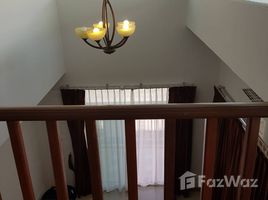




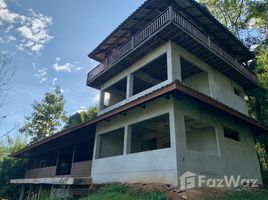




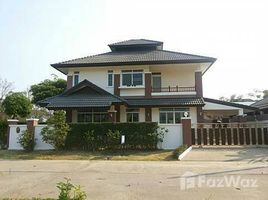




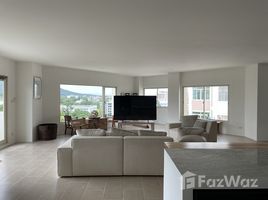




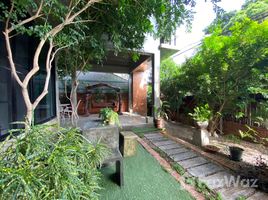




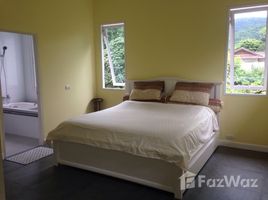




 Don't miss out!
Get notified when new properties for sale are listed in Chiang Mai
Don't miss out!
Get notified when new properties for sale are listed in Chiang Mai
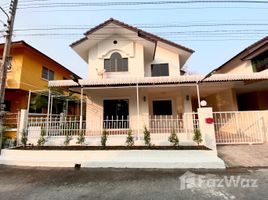




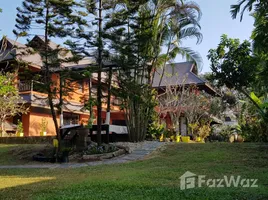




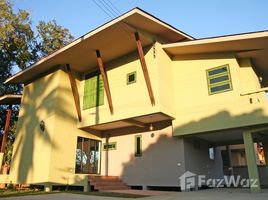









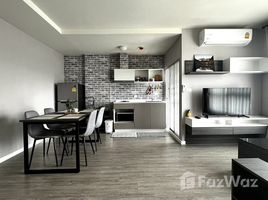




















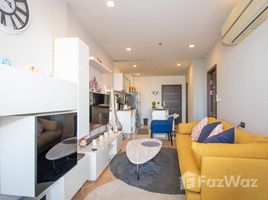









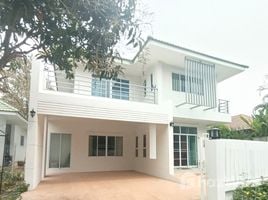




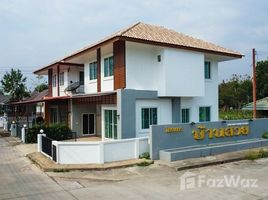










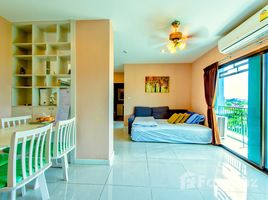









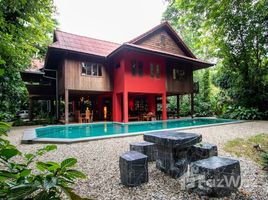




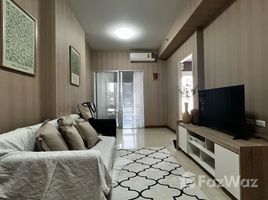




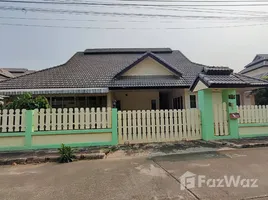





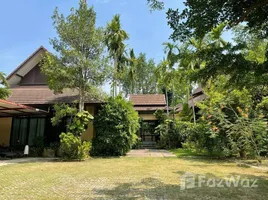




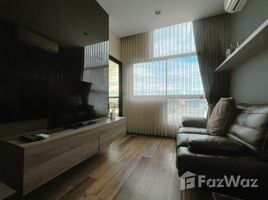









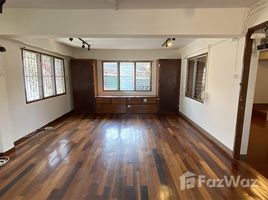




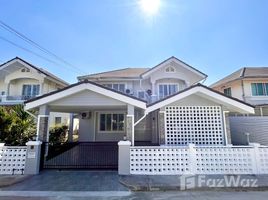




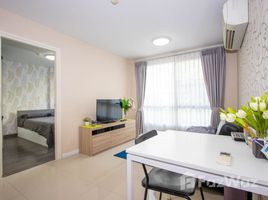




Learn more about the Chiang Mai property market through trends and average prices.

Chiang Mai is surrounded by misty mountains and filled with color, an adventurous place for travelers, filled with art, beautiful places to relax, drink amazing coffee or shop ‘til you drop.
Chiang Mai is the capital of mountainous northern Thailand. Thailand’s second major city was founded in 1296, previously the capital of the Lanna Kingdom until 1558, which included parts of modern-day Myanmar and Laos. It centers around an Old City area and still retains remnants of the ancient wall and moat from its history as a cultural and religious center. It’s also home to hundreds of elaborate Buddhist temples, some of which are 600 years old.
Whilst packing the punch of a modern city in terms of sites, restaurants and things to do, geographically the main parts of the city are all within a short distance and easy to access earning the city the description of having a village feel.
Chiang Mai has property to suit all investment needs. Condominiums and townhouses are focused in the city center and houses spread out into the 3 ring-roads that locals break the city down into. When we opened up Chiang Mai we didn’t realize how far spread out it is, but some people want the quiet life with mountain and rice paddy views from their houses, which are easy to find a bit further out, and some people want an inner-city condo, so they all exist to suit different needs.
For those looking at holiday home with investment potential, some developers have guaranteed returns attached to new properties including time allocated for you to stay there. This is available for condo’s or houses it is an immature concept in Chiang Mai so there aren’t a huge amount of options, but there is a buoyant rental market and if you buy through Fazwaz with the intention of renting we take extra special care to make sure that happens.
There are a few luxury condo buildings around the city center with prices under half of that in Bangkok with similar quality.
Every type of house is available around the city from modern starter homes to high-end mansions with everything in-between.
Inside the first ring-road is the city center, however, some newcomers to Chiang Mai will think The Old City is the city center. We rarely have property for sale in the old city as it is mainly touristic there. Close-by Nimman could be considered the New City and has a lot of condo options there and surrounding. If you are looking for a condo with mountain views the area near to Nimman is good as the famous Doi Suthep Mountain is on the west side of the city.
There are two more popular areas within the city center for condominiums these are the area next to the Night-bazaar and Central Festival shopping mall. All have access to everything you would ever need.
For houses there is a more diverse landscape, however, unlike other cities, there doesn’t tend to be more upmarket suburbs in Chiang Mai, rather pockets where bigger houses may exist within the established areas. As we described earlier the city is broken down by locals into 3 ring-roads, and a lot of the houses are outside the first. Clockwise from 10 o’clock, the popular areas are Mae Rim, San Sai, Doi Saket, San Kamphaeng, Saraphi, and Hang Dong. There are amenities and sub-divisions within all of these areas, and any properties we list on Fazwaz will be in a great area for foreigners to live.
If you are buying for investment purposes the city center or as close to is recommended but not necessary for the right property.
Northern Thailand is cooler than the south in all senses of the word. The people are more laid back, and so is the lifestyle and pace of life. With a population under 500,000, there is a community sense where foreigners and locals are very mixed, local events are visited by all, like the world famous Yee Peng lantern festival, which coincides with the Thai Loi Krathong festival. The whole Thai family is in attendance mixed with expats, retirees, and backpackers to release lanterns into the sky bringing good fortune for the year ahead.
The city is full of galleries and coffee shops to relax in. Or you could take a trip to one of the lakes within 5km of the city center and spend the day lazing away in a bamboo hut being served local Northern Thai cuisine.
For a more generalist lifestyle, the city is also home to 4 big shopping malls with all the latest fashions, department store, and many big supermarkets catering to local and western tastes.
Nature. Chiang Mai is surrounded by mountains, flora and has resorts and attractions in all directions to never get bored. Visit some elephants in a sanctuary, or take a bamboo raft down the river, these are 2 of the many day trips available to travelers and city-dwellers alike. Doi Inthanon – Thailand’s highest peak is but 50 minutes from the city and is surrounded by waterfalls.
Trends vary from area to area in Chiang Mai, however, the average sales price has been rising 10% per year for condominiums in the city and around 5% on the outskirts according to Colliers International for the past 2 years now.
Chiang Mai is one of the cheapest major cities for living in Thailand and that includes property prices. The average price of THB 48,620 per square meter is under half of the national average in major markets.
New condominiums are around 100k SqM in the city center, whereas Bangkok commands around 400k SqM for its new luxurious building developments.
Chiang Mai was named the world’s second healthiest city (behind Paris) to visit by Travelsupermarket.com. Ranking measured the number of green spaces/parks, gyms, spas, and vegan restaurants in cities. It also measured the number of yoga studios, sunlight hours and cost of a stay. All of which are relevant too if you’re a foreigner living in Thailand, you’re here for that vacation-lifestyle.
Foreign nationals are indeed permitted to purchase property in Chiang Mai, albeit with certain restrictions and guidelines in place to ensure adherence to the laws and regulations of the Kingdom of Thailand. It is essential for prospective buyers to comprehend these guidelines thoroughly to secure a successful and legally compliant transaction.
Primarily, foreigners are not allowed to own freehold land directly under Thai law. However, they can acquire land through leasehold agreements, typically spanning 30 years, with the option to renew for two additional 30-year periods. In contrast, foreign nationals can own condominium units outright, provided that the total foreign ownership within the condominium complex does not surpass 49% of the total available space.
Another alternative for land acquisition is through the establishment of a Thai Limited Company. While a foreigner cannot own more than 49% of a company's shares, they can hold a controlling interest through preferential voting rights. This method requires meticulous attention to legal requirements, appropriate structuring, and consultation with an experienced local attorney.
When purchasing property in Chiang Mai, certain taxes and fees – including transfer fees, withholding tax, stamp duty, and specific business tax – are applicable to both local and foreign buyers. It is crucial to budget for these additional expenses and consult with professionals to ensure full legal compliance.
In conclusion, while there are limitations to foreigners buying property in Chiang Mai, it remains a viable and attractive real estate investment opportunity. By understanding and adhering to the rules, regulations, and processes in place, foreign nationals can successfully invest in Chiang Mai's property market. It is highly recommended to seek the advice of a reputable local attorney and real estate agent to facilitate a smooth and legally compliant acquisition.
Investing in property in Chiang Mai can indeed be a wise decision, as the city offers a delightful blend of culture, convenience, and potential for growth. With an affordable cost of living and numerous lifestyle amenities, Chiang Mai has been gaining popularity among expatriates, retirees, and digital nomads, paving the way for fruitful real estate opportunities. When considering a property investment in Chiang Mai, the following factors play a vital role in determining the scope for success:
1. Thriving Tourism Industry: Chiang Mai's cultural richness, mesmerizing landscapes, and enjoyable climate attract tourists year-round, creating a significant demand for short-term accommodation. Investors can capitalize on this by purchasing properties to rent out as holiday homes, thereby generating consistent rental income.
2. Growing Expat Community: The city's relaxed atmosphere, coupled with its modern infrastructure, has made Chiang Mai an attractive destination for expats, digital nomads, and retirees. Investing in a property that caters to this demographic can yield substantial returns, as they often seek long-term stays and are willing to pay higher rental rates for quality homes.
3. Infrastructure Development: Chiang Mai is currently witnessing a flurry of infrastructural growth, such as the expansion of its airport and road network. This development is expected to boost its connectivity and drive up property values in the long run.
4. Diverse Property Options: Whether you're eyeing a luxury condominium or a cozy single-family home, the real estate market in Chiang Mai offers a wide array of options to suit different investment preferences and budgets. This versatility allows investors to tailor their strategies according to their financial goals and risk appetite.
5. Competitive Prices: Compared to other major Thai cities like Bangkok, Chiang Mai offers relatively affordable real estate options, enabling investors to enter the market without breaking the bank.
In conclusion, purchasing property in Chiang Mai can be a sound investment decision, considering the city's mounting appeal and dynamic real estate landscape. However, as with any
It is indeed possible for foreign nationals to purchase a house in Chiang Mai without Thai citizenship. However, navigating the property market and adhering to the legal regulations in Thailand can be a complex process, necessitating a thorough understanding of the country's property laws and limitations that apply to non-citizens.
While foreigners are not permitted to own land directly, alternative solutions are available to enable property acquisition. One common option is to engage in a long-term lease known as a leasehold, which typically lasts for 30 years but can be renewed. Though the land remains under the ownership of the Thai national or a Thai company, the foreigner has the right to possess, develop or transfer the property, subject to the terms and conditions of the lease contract.
Another possibility is to register a Thai limited company, where the foreigner can hold up to 49% of the shares. In this arrangement, the majority ownership (51% or more) of the company must be held by Thai nationals. The company can then purchase the land and house, effectively allowing the foreigner indirect ownership through their share in the company. In this scenario, the foreign national must ensure that the company adheres to all legal requirements and regulations.
In the case of condominiums, foreign nationals may directly own the freehold of the property, provided that no more than 49% of the total area of the condominium project is owned by foreigners. This option allows for more straightforward ownership, though it may be limiting in terms of available property choices.
Given the complexities involved in acquiring property in Chiang Mai as a non-citizen, potential buyers are advised to employ the expertise of a reputable real estate agency and legal professionals with experience in Thai property law. This ensures a smooth transaction and compliance with regulations, ultimately providing greater peace of mind during the purchasing process.
When considering the best place to buy property in Chiang Mai, several factors come into play, such as convenience, lifestyle preferences, and potential return on investment. Chiang Mai's diverse neighborhoods offer unique qualities that cater to varying needs and preferences. Here are the top three areas where you can confidently invest in real estate.
1. Nimmanhaemin (Nimman) Area: Nimmanhaemin, fondly referred to as 'Nimman', is a vibrant and modern neighborhood that has transformed into one of Chiang Mai's most desirable places to live. Nestled at the foot of the picturesque Doi Suthep Mountain, Nimman is home to trendy cafes, international restaurants, boutique shops, and top-notch condominiums. With its perfect blend of urban living and natural surroundings, the Nimman area attracts both locals and expats alike. The area's popularity ensures strong demand for rental properties, making it an ideal location for investors looking for high rental returns.
2. Old City Area: The Old City, encircled by its ancient moat and walls, is the historic heart of Chiang Mai. Rich in cultural heritage, it boasts stunning temples, traditional wooden houses, and quiet, charming streets. In recent years, the Old City has seen an influx of quaint guesthouses, boutique hotels, and modern condos, making it a desirable area for those who want to experience the city's history while enjoying contemporary amenities. Property in the Old City area promises steady appreciation in value due to its central location and limited availability of land.
3. Hang Dong & Mae Hia Areas: For those seeking a more tranquil, suburban lifestyle, the Hang Dong and Mae Hia areas offer excellent options. These neighborhoods are excellent choices for families due to their proximity to reputable international schools, shopping centers, and recreational facilities such as golf courses and parks. The area's serenity and picturesque landscapes, combined with its accessibility to Chiang Mai's city center, make Hang Dong and Mae H